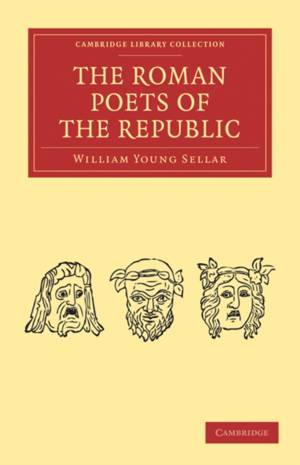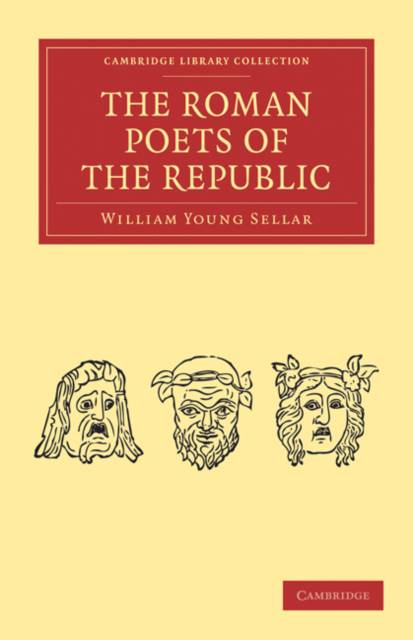
- Afhalen na 1 uur in een winkel met voorraad
- Gratis thuislevering in België vanaf € 30
- Ruim aanbod met 7 miljoen producten
- Afhalen na 1 uur in een winkel met voorraad
- Gratis thuislevering in België vanaf € 30
- Ruim aanbod met 7 miljoen producten
Zoeken
Omschrijving
William Young Sellar (1825-1890) was a scholar of Latin poetry. First published in 1880, this is a lively account of poetry in the Roman Republic, which was acclaimed as the purest art form of its time. Exploring the work of a range of poets, from Andronicus, Lucilius and others in the second century BCE, through to Lucretius and Catullus in the first century BCE, Sellar shows how poems were characterised by political, religious, and social factors, as well as by the personalities of the poets themselves. Looking at genres from tragedy to comedy to satire, he also considers the role of Greek literature in the shaping of Latin poetry, and how the poets influenced each other's work. The second edition of a volume originally published in 1863, this version features an updated account of the poems of Lucilius and Catullus, and two new chapters on Roman comedy.
Specificaties
Betrokkenen
- Auteur(s):
- Uitgeverij:
Inhoud
- Aantal bladzijden:
- 482
- Taal:
- Engels
- Reeks:
Eigenschappen
- Productcode (EAN):
- 9781108029827
- Verschijningsdatum:
- 30/06/2011
- Uitvoering:
- Paperback
- Formaat:
- Trade paperback (VS)
- Afmetingen:
- 140 mm x 216 mm
- Gewicht:
- 607 g

Alleen bij Standaard Boekhandel
+ 180 punten op je klantenkaart van Standaard Boekhandel
Beoordelingen
We publiceren alleen reviews die voldoen aan de voorwaarden voor reviews. Bekijk onze voorwaarden voor reviews.











